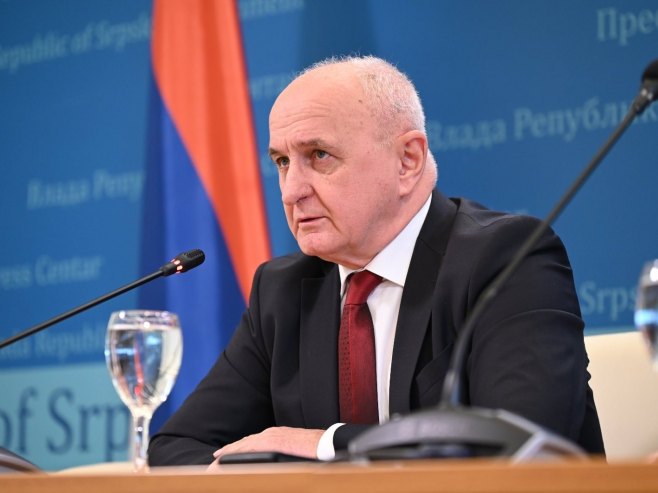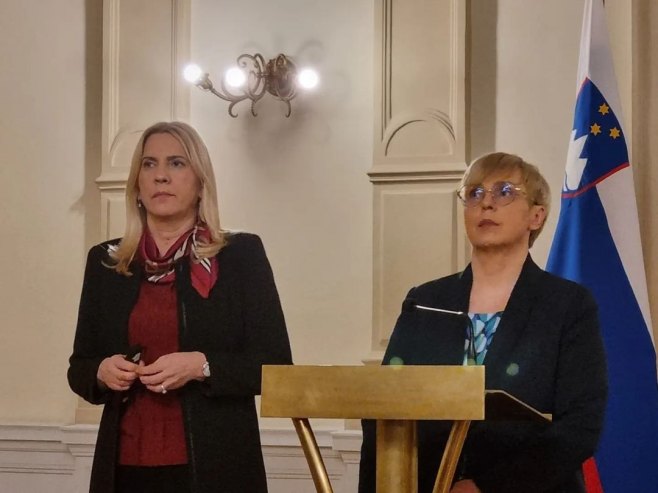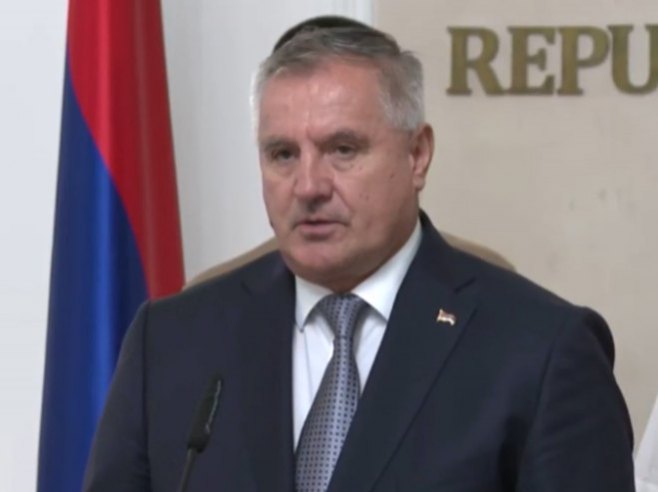The parliamentary clubs of SNSD, SDS, PDP, DEMOS, SP, NPS, United Srpska, and the List for Justice and Order, as well as the parliamentary groups of SPS, DNS, and the People’s Front, have proposed conclusions regarding the report of the Independent International Commission for the Investigation of the Suffering of All Peoples in the Srebrenica region from 1992 to 1995.
The National Assembly of Republika Srpska supports the views expressed in the conclusions of the report of the Independent International Commission for the Investigation of the Suffering of All Peoples in the Srebrenica region from 1992 to 1995 and confirms that the term “genocide” for Srebrenica is incorrect and unacceptable, according to the draft conclusions.
The National Assembly permanently rejects this qualification, considering that the minimal number of Muslim forces, war prisoners, captured and executed is between 1,500 and 2,000, and the maximum is up to 3,000, the draft conclusions state.
According to the proposal, the National Assembly recognizes that the Commission’s report will contribute to an objective and impartial understanding of the suffering of all peoples in the Srebrenica region and particularly emphasizes the fact that the Commission worked in completely neutral conditions, without any demands or impositions from the institutions of Republika Srpska or any political demands.
The National Assembly is confident that only a comprehensive and truthful examination of the war events in the Srebrenica region, as well as throughout BiH, will contribute to strengthening trust and tolerance among the peoples in BiH, ultimate reconciliation, and coexistence of current and future generations, the draft conclusions state.
The Parliament of Republika Srpska expresses its respect for the victims and their families from the tragic conflict in BiH and condemns the war crimes committed on all sides.
According to the proposal, the National Assembly rejects the Report of the Commission for the Investigation of Events in and around Srebrenica from July 10 to 19, 1995, compiled in Banja Luka in June 2004 and October 15, 2004, considering it inaccurate, tendentious, speculative, politically imposed by High Representative Paddy Ashdown, made unobjectively and maliciously against the Serbs and Republika Srpska.
The National Assembly highlights the fact that the Commission’s report found that from 1992 to 1995, as a result of the ethnic cleansing of the Serb population, more than 2,650 civilians, captured soldiers, and village guards were killed and suffered.
The draft conclusions condemn and find absolutely unacceptable and impermissible the actions of ambassador Zlatko Lagumdžija, the permanent representative of BiH to the UN, who are directed towards preparing and submitting a proposal for a resolution on “genocide” in Srebrenica to the UN General Assembly without consultations and consent of the institutions of BiH, entities, and constituent peoples, aimed at demonizing Republika Srpska and the Serb people as genocidal.
The draft conclusions call for the Serb member of the Presidency of BiH to initiate a procedure in the Presidency of BiH for the dismissal of ambassador Zlatko Lagumdžija, as Republika Srpska and the Serb people reject him as the ambassador of BiH.
The National Assembly of Republika Srpska notes that the mechanism of foreign policy of BiH is undermined and that ambassadors appointed from the territory of Republika Srpska must respect the decisions of the Srpska institutions and are only obliged to follow the foreign policy of BiH based on the Constitution of BiH and exclusively the agreed decisions of the Presidency of BiH, the text states.
The proposal of conclusions mandates the Ministry for European Integration and International Cooperation and the Republic Center for Research of War, War Crimes, and Tracing Missing Persons to continue activities aimed at presenting the results of the Commission’s work and the Report to a wider domestic and international audience.
The Parliament of Srpska calls on the members of the House of Representatives elected directly from Republika Srpska and the delegates of the House of Peoples elected by the National Assembly to submit these conclusions for discussion in the Parliamentary Assembly of BiH.
Representatives of Republika Srpska will inform participants of the Great Easter Assembly of Republika Srpska and Serbia about the content of this conclusion.
Source: RTRS









